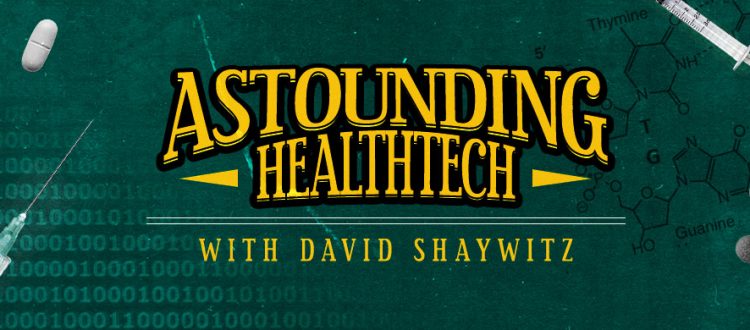GLP-1s Secret Weapon: Improving Health By Enhancing Agency

David Shaywitz
The arrival of generative AI prompted many to worry about the adverse impact on human agency; after all, if the technology can effectively do what we’re doing, where does that leave us?
This concern was the central focus of Reid Hoffman’s “Superagency,” which I reviewed for the WSJ earlier this year – see here. Essentially, Hoffman argues that new technologies can take some time to adjust to, but ultimately they empower us to do more things and greater things.
In the moment, however, that’s not how many experience the technology; in the review, I discuss a 2024 research paper out of MIT exploring the impact of generative AI on material scientists. The technology seemed to make the researchers more productive – and apparently even more creative – but also robbed them of the aspect of their work that provided them the most satisfaction.
As I wrote,
Mr. Hoffman, presumably, would argue that future scientists, accustomed to partnering with AI, will experience an enhanced sense of agency based on all they will be able to accomplish. Whether this forecast ultimately accords with our lived experience is the unanswered question upon which Mr. Hoffman’s cheery thesis depends.

Reid Hoffman
Recently, I’ve been thinking a lot about agency in the context of another remarkably powerful emerging technology – GLP-1 receptor agonists, the wildly popular anti-obesity medicines developed by Lilly and Novo.
According to the most recent CDC data, over 40% of Americans are categorized as suffering from obesity (defined, however imperfectly, as a BMI of 30 or higher); 9.2% of Americans suffered from extreme obesity (BMI 40 or higher). As the CDC points outs, “This means that more than 100 million adults have obesity, and more than 22 million adults have severe obesity.”
These numbers are climbing; twenty years earlier, about 30% of Americans were classified as suffering from obesity, and 4.7% suffered from extreme obesity, according to the CDC.
Prior to the arrival of GLP-1 medicines, durably losing weight in the extraordinarily obesogenic environment that we inhabit was virtually impossible without bariatric surgery. But not for lack of effort; millions of Americans endured cycle after cycle of desperately trying to lose weight, only to fail entirely, or to briefly succeed and then regain the weight rapidly. I can relate (see here, here).
One consequence of this pattern was a sense of futility around lifestyle changes for health. Yes, doctors preached the benefits of “diet and exercise,” and everyone is familiar with this advice. However, the sad reality is that the constant failure of the diet component often resulted in a broader sense of demoralization. What’s the point of sweating on the treadmill for half an hour if you’re just going to undo the apparent benefit by scarfing down some oreos later that day? (To be sure: there are many important intrinsic benefits of exercise, but it could be a difficult argument to make when someone is watching themselves get heavier day after day.)
The demoralization associated with failed (or being failed by) diet/nutrition programs (presumably coupled with the increased difficulty of exercising when you are heavier) thus had a cascading effect, depriving many of the absolutely extraordinary health benefits associated with physical activity, as I’ve discussed here and just this week here.
Enter the GLP-1s. In addition to all the remarkably positive effects they seem to have on their own (including some that appear independent of weight loss, as endocrinologist Daniel Drucker notes in a recent review, here), I suspect that among the greatest health opportunities associated with GLP-1 medicines will be their enhancement of our sense of agency.
According to University of Pennsylvannia professor Martin Seligman (see my discussion here) agency boils down to the belief that “I can make a positive difference in the world.” As I wrote,
Referencing what he describes as an extensive literature, Seligman argues that “people who have high agency are physically healthier,” adding “If you look at people with high agency holding constant the traditional risk factors, they live on average 6-8 years longer,” compared to people with low agency.
He continues, “Optimistic people—people who believe that they can control things far into the future, bounce back. They resist depression. They succeed. They try harder and give up less at school.” They do better in college than their SATs predict, he says, and do better at work. In contrast, “pessimistic people are less productive than their talents predict.”
From a health perspective, he says “about 20 well-done studies” have shown that after accounting for “the usual risk factors,” it turns out that “being in the bottom quartile of pessimism is roughly equivalent to smoking 2-3 packs of cigarettes a day for longevity. “
The point is that according to Seligman, enhanced agency is associated with better health. The massive opportunity I suspect GLP-1s may represent is that by allowing people – finally – to achieve mastery of their diet and appetite, these medicines might profoundly enhance our sense of agency.

Martin Seligman, Zellerbach Family Professor of Psychology, University of Pennsylvania; Founding Director, Positive Psychology Center
In addition to this being intrinsically beneficially to our health as Seligman suggests, it’s easy to imagine that success in the nutrition management will motivate many to embrace other health enhancing behaviors, including in particular exercise, which presumably will generate still more positive feedback and enhance our sense of agency even further.
In short, GLP-1s will generate what I’d call an agentic dividend that can be — and should be — leveraged to drive other healthy behaviors.
A bit optimistic? Only if GLP-1s prove financially inaccessible to most people – unfortunately, a very real possibility.
A skeptic might also argue that GLP-1s are fundamentally a cheat – in helping us lose weight without the suffering, we don’t really acquire the mastery, and perhaps the sense of enhanced agency, that weight loss without medical assistance might provide.
This is an understandable argument (if also somewhat dated with its emphasis on raw willpower). It’s also arguably moot since so few people were durably successful this way. I suspect that without the psychological burden of serial diet/nutrition failures, we will be far more enthusiastic about embracing additional healthy activities.
I am particularly excited by the profound opportunity here to recognize and leverage the agency enhancement that GLP-1s will provide and use it to fuel additional health-positive behaviors, starting with exercise, and building out from that foundation.




